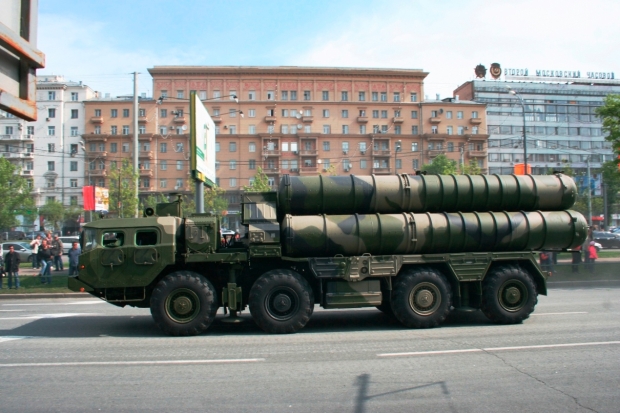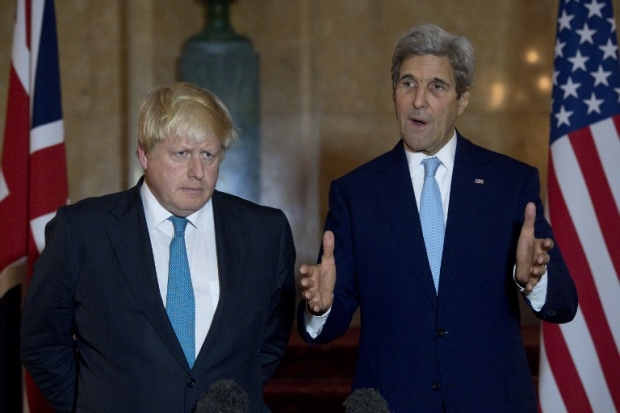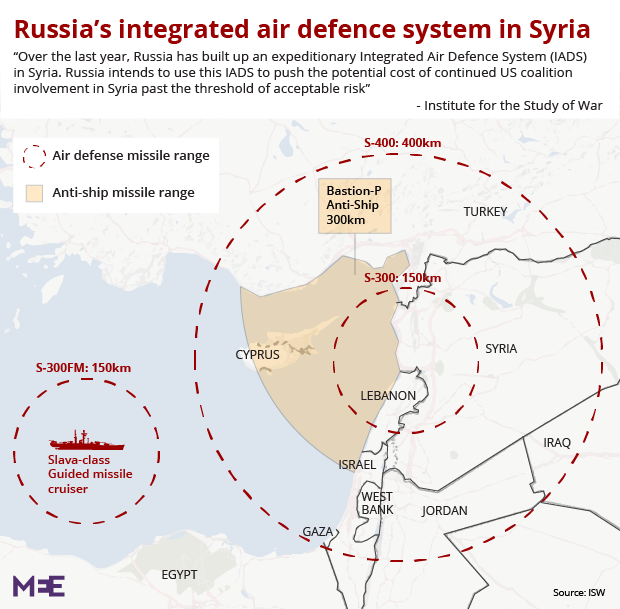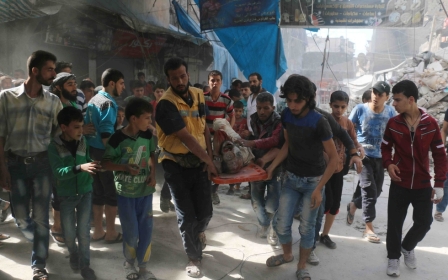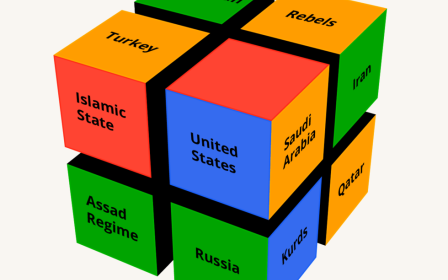Putin has outplayed a bumbling West in Syria
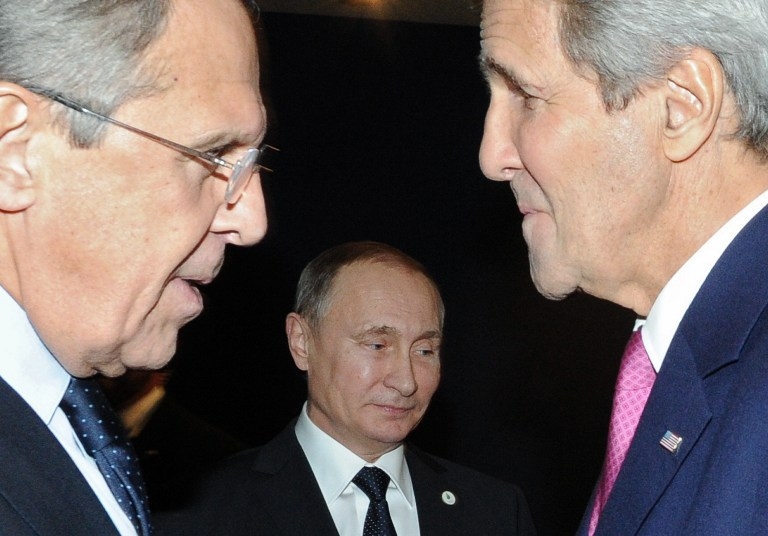
On 3 October with the wider world absorbed in other matters, something quite remarkable happened in Syria. Russia deployed the S-300 air defence system to its naval base in Tartus, the final piece in a puzzle called the Integrated Air Defence System (IADS) that the Russians have been carefully assembling at the base over the past two years.
Putin's intervention has just about secured the unthinkable: the affirmation of Assad as the man who will have to be at the table if and when peace talks begin
While global attention was focused on the ongoing offensive against the Islamic State (IS) group and the brutal pummelling of Aleppo by Russian and Syria jets, the S-300, a sophisticated, fully mobile anti-ballistic system was quietly put in place. It is capable of taking down fighter jets within a 150km range.
Add in the S-400, which was installed in late 2015, and is what the BBC called “one of Russia's most modern air defence systems with an extraordinary reach”, and the short answer is yes we definitely should be worried.
Sabre-rattling
Consider the S-400. It has a 400km range, giving it an arc that takes in virtually all of Syria, a big chunk of southern Turkey and all of Israel north of the Negev Desert. And it easily reaches Cyprus where British warplanes are based.
Meanwhile, eight Russian warships are reportedly headed to the Mediterranean, passing through the English Channel on their way, in what the Daily Telegraph says is “the biggest military offensive since the end of the Cold War". It is a bold sabre-rattling gesture, intended to be much louder and noisier than the stealthy development of the air defence system.
The Tartus redoubt dovetails neatly with the tough, aggressive foreign policy hand that Vladimir Putin enjoys playing. He showed his steel with the absorption of the Crimea and the ongoing military incursion into eastern Ukraine.
His Syrian intervention saved Bashar Assad from near-certain defeat while his ruthless bombing of Aleppo, so reminiscent of the destruction of Grozny in 2000, has just about secured the unthinkable: the affirmation of Assad as the man who will have to be at the table if and when peace talks finally do begin.
Empty, silly words
And as eastern Aleppo city is systematically flattened, the US and the UK remain impotent, wringing hands and calling for “tough new sanctions".
In the case of Boris Johnson, the handwringing was reduced to urging protesters to march outside the Russian embassy in London. It was absurdly undiplomatic language for a foreign secretary, rendered laughable when only one person bothered to take up his call to action. Meanwhile, the Russian embassy delighted in tweeting catcalls of derision.
Tartus, armed with IADS, gives Putin a military presence in the region that his former Communist bosses would have moved heaven and earth to have. It enables him to play the game of bluff and counter-bluff from a position of strength.
And his strategy, relentless, inexorable and vicious as it is, has put Russia and its ally Iran in a power position at a desperately volatile and dangerous time in the Middle East.
The actual no-fly zone
In return, our response has been hesitant, vacillating and confused. The former international development secretary Andrew Mitchell has spoken of a no-fly zone. The prime minister poured cold water on that call and good thing she did.
The cruel irony is that the IADS which the Russians have incrementally installed and which is, remember, mobile and easily deployed, effectively creates a no-fly zone for our aircraft.
Any attempt to halt Russian and Syrian planes from bombing Aleppo would put our fighter jets in the trigger sights of IADS. Putin has already warned that he will shoot down US and coalition aircraft were they to try and interfere with the Aleppo campaign. It may be a bluff, but he has the punch to back it up.
We are witnessing the dawn of a new cold war, one that Putin has cleverly orchestrated while winning himself staggeringly high levels of domestic support
No one on this side of the war, as Kerry frankly admitted, is prepared to take the risk of coalition jets being shot down by Russian missiles so the humanitarian disaster that is Aleppo continues on and on and on. Which brings us back to sanctions.
It is true that sanctions already in place have seriously hurt the Russian economy, particularly when combined with the collapse in oil prices. Already major Russian state banks and corporations in the energy, military and arms manufacturing sectors have been hit.
And dozens of powerful businessmen close to Putin have been blacklisted, with their assets in Western banks, their shares and other assets frozen. They have had travel restrictions placed on them.
But those sanctions have been in place for nearly two years. They did not deter Putin from backing Assad to the hilt. They haven’t stopped him from unleashing the full horrors of an all-out aerial war on defenceless civilians in Syria.
Further sanctions, I fear, will only provide more cannon fodder for a dictator’s propaganda machine, one that is busy churning out an extreme nationalistic message while massaging Putin’s messianic ego.
Player, play on
The Russian leader astutely plays the West as the old rival resurrected: us against the enemy. The economy suffers, so the Putin narrative goes, not because of gross corruption or military adventurism or incompetence but because the West is attempting to deny Russia its rightful place in the world.
We are witnessing, in fact, the dawn of a new cold war, one that Putin has cleverly orchestrated while winning himself staggeringly high levels of domestic support. His party was returned to the Duma with a huge majority, while polls claim his personal popularity hit 82 percent. Appealing to nationalist sentiment, calling for the restoration of Russian greatness, these are easy cards to play and Putin and his minions play them with a cool contempt, while the West struggles to respond.
At some point, the Russian people may look at their stagnant and battered economy and see that Putin’s push for greatness is at a cost too high for them to pay but I do not see that day coming anytime soon.
A brief ceasefire notwithstanding, the agony of Aleppo will end soon, but it will end with what is left of the city in Assad’s hands and with Vladimir Putin winning a victory he believes he richly deserves. As for the rest of us, we can only recoil in abhorrence from his savagery in a despair made all the more bitter by our impotence to do anything about it.
- Bill Law is a Middle East analyst and a specialist in Gulf affairs. He tweets @billlaw49.
The views expressed in this article belong to the author and do not necessarily reflect the editorial policy of Middle East Eye.
Photo: Russian Foreign Minister Sergei Lavrov (L) speaks with US Secretary of State John Kerry (R) as Russia's President Vladimir Putin (C) stands behind during the UN conference on climate change - COP21, on November 30, 2015 at Le Bourget, on the outskirts of the French capital Paris (AFP)
Middle East Eye propose une couverture et une analyse indépendantes et incomparables du Moyen-Orient, de l’Afrique du Nord et d’autres régions du monde. Pour en savoir plus sur la reprise de ce contenu et les frais qui s’appliquent, veuillez remplir ce formulaire [en anglais]. Pour en savoir plus sur MEE, cliquez ici [en anglais].



